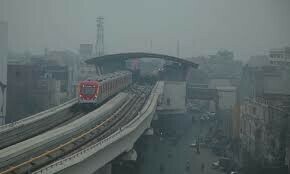FAISALABAD: The Federal Investigation Agency (FIA) is investing into a power selling and buying arrangement between the Faisalabad Electric Supply Company (Fesco) and a private power producer which inflicted a Rs11.78 billion loss.
The trade between the Sitara Energy Limited (SEL) and Fesco was done without the approval of the National Electric Power Regulatory Authority (Nepra).
SEL Chief Executive Javed Iqbal denied the allegations, saying they had followed rules and regulations in the agreement and “the FIA under wrong impression, caused by anonymous complainants, initiated the inquiry wherein, despite legal issues, the SEL extended its utmost cooperation.”
State Minister for Water and Power Abid Sher Ali said the ministry had also initiated a probe into the issue.
The FIA report, prepared in January last, states Fesco bought power from the SEL at higher rates and sold it back to the Sitara Chemical Industries (SCI) at much lower rates from July 2007 to March 2015, all in violation of Nepra rules.
The FIA report says a power purchase agreement (PPA) for 25+5 megawatt was signed by the SEL and Fesco on Sept 8, 2007, for three years which could be extended by a mutual consent of the parties. However, Nepra’s approval was mandatory for the PPA. The PPA was again renewed without the permission of Nepra on Sept 3, 2010, for one year.
Then chief commercial officer, Ghazanfar Ali, had sent a letter to Nepra on Aug 15, 2011, for the renewal of the PPA, going to be expired on Sept 7, 2011. The SEL, however, never got renewed the PPA and continued supplying electricity to Fesco in the absence of a valid PPA. Fesco also kept paying regularly to the SEL the price without raising any objection.
Then chairman of the Fesco board of directors, Nadeem Aftab Sindhu, also allowed buying power from the SEL ignoring the interest of Fesco even though he knew that approval of the agreement from Nepra had been pending since Sept 8, 2007.
Nepra, in the petition by Fesco for tariff determination for 2011-12, declared the PPA signed on Sept 8, 2007, inconsistent with tariff determination and in violation of rules.
It says the SEL breached the licencing terms by selling energy to Fesco as it could only sell surplus power to approved customers and Fesco was not among them.
Fesco bought power from the SEL illegally without submitting power acquisition agreement to Nepra.
The company only submitted a request for determination of tariff to Nepra in 2011-12 for purchase of 9MW and 25+5MW power from the Koh-i-Noor Power Company (KPCL) and the SEL.
The electricity was bought from the KPCL and the SEL on the basis of mutually agreed rate against the determination of Nepra.
At the same time, the KPCL was selling 5.8MW to Fesco at Rs16/KWH and when Nepra inquired as to why Fesco was buying power from the KPCL at a higher rate and selling back to it a lower rate, the immediately stopped buying power from the KPCL but continued power purchase from the SEL at higher rates, says the Nepra report.
The report also questions why Fesco did not approach Nepra for the approval of tariff. Nepra declared that Fesco not only violated its directions but also breached the licencing terms.
“When the time came to sell power to Fesco at lower rate and then buying it back at higher rate, the SEL has stopped selling power since March 17 last. The SEL has started selling power to its sister concern -- the SCI -- at much lower rates. The SCI reduced monthly consumption from Fesco as compared to the previous period prior to March last year,” reads the report.
The glaring difference in the prices of buying and selling can be ascertained from the transactions done in August 2014, the SEL sold 16.9 million units to Fesco at an average rate of Rs18.20 without tax and the SCI bought 14 million units from Fesco at Rs13.08 without tax. The difference of selling and buying by SEL remained Rs5.12.
SEL Chief Executive Javed Iqbal said in the Power Policy of 1994, the government had extended special incentives to small power producers and encouraged them to sell electricity to the national grid or the bulk power consumers (BPCs).
After obtaining all the then requisite approvals consent of Wapda, the SEL obtained permission to sell its electricity to BPCs.
After the creation of Nepra, the SEL obtained its generation licence from Nepra in 2002, under which the SEL was authorised to sell power to any BPC with the approval of Nepra and its relevant distribution company like Fesco without further approval of Nepra.
He said the SEL was not a buyer of electricity from Fesco, while the SIC was an independent legal entity.
Published in Dawn, March 18th, 2016














































Dear visitor, the comments section is undergoing an overhaul and will return soon.